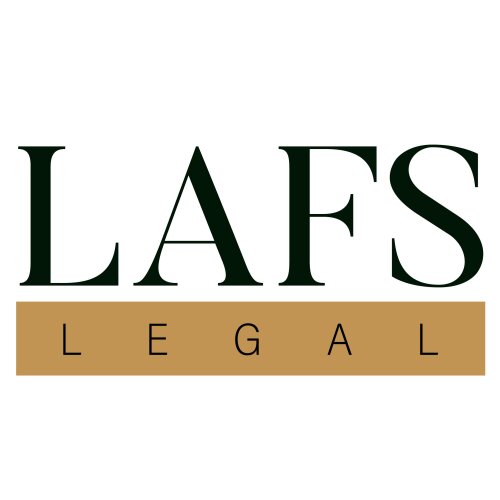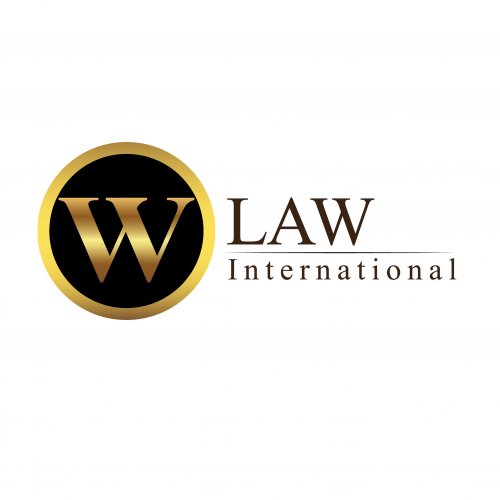ทนายความ การวางแผนมรดก ที่ดีที่สุดใน ประเทศไทย
แบ่งปันความต้องการของคุณกับเรา รับการติดต่อจากสำนักงานกฎหมาย
ฟรี ใช้เวลา 2 นาที
หรือปรับแต่งการค้นหาของคุณโดยเลือกเมือง:
รายชื่อทนายความที่ดีที่สุดใน ประเทศไทย
1. เกี่ยวกับกฎหมายการวางแผนมรดกในประเทศไทย
การวางแผนมรดกในประเทศไทยส่วนใหญ่ขึ้นกับประมวลกฎหมายแพ่งและพาณิชย์ ซึ่งควบคุมการสืบมรดก พินัยกรรม และวิธีการถ่ายทอดทรัพย์สินหลังการเสียชีวิต
เป้าหมายหลักคือการป้องกันข้อพิพาทภายในครอบครัว และกำหนดผู้รับมรดกอย่างชัดเจน ทั้งนี้ต้องคำนึงถึงทรัพย์สินประเภทต่างๆ เช่น ที่ดิน บ้าน หุ้น และทรัพย์สินต่างประเทศ
2. ทำไมคุณอาจต้องการทนายความ
ทนายความช่วยให้คุณจัดทำแผนมรดกที่สอดคล้องกฎหมายและความสามารถในการบังคับใช้จริง เหตุผลรวมถึงการปรับเปลี่ยนพินัยกรรมเมื่อสถานการณ์ครอบครัวเปลี่ยนแปลง
- กรณีมีทรัพย์สินหลายประเภทในคนละประเทศ จำเป็นต้องวางแผนให้สอดคลันกับกฎหมายต่างประเทศ
- กรณีมีคู่สมรสมรสหลายครั้ง และมีบุตรจากแต่ละรอบ ต้องการระบุผู้รับมรดกอย่างชัดเจน
- กรณีมีทรัพย์สินที่ดินในไทยและต่างประเทศ ต้องทราบเครือข่ายกฎหมายที่เกี่ยวกับที่ดิน
- กรณีต้องการลดความเสี่ยงจากข้อพิพาทภายในครอบครัวหรือผู้รับมรดก
- กรณีต้องแก้ไขพินัยกรรมเดิมตามเหตุการณ์ใหม่ เช่น แต่งงาน มีบุตรเพิ่ม หรือมีทรัพย์สินใหม่
3. ภาพรวมกฎหมายท้องถิ่น
- ประมวลกฎหมายแพ่งและพาณิชย์ (ป.พ.พ.) เกี่ยวกับมรดก พินัยกรรม และการรับมรดกถูกรวมไว้ในกฎหมายเดียวกัน ทำให้กระบวนการวางแผนมรดกมีโครงสร้างที่ชัดเจน
- พระราชบัญญัติลักษณะที่ดิน พ.ศ. 2497 (Land Code) ควบคุมการโอนกรรมสิทธิ์ที่ดิน และข้อจำกัดการถือครองทรัพย์สินบางประเภท ซึ่งมีผลโดยตรงต่อการวางแผนมรดกที่มีที่ดินเป็นส่วนประกอบสำคัญ
- ภาษีมรดก ปัจจุบันประเทศไทยยังไม่มีการเรียกเก็บภาษีมรดกโดยรัฐบาล จึงควรพิจารณาแผนมรดกในแง่การถ่ายโอนทรัพย์สินและการบริหารหนี้สินแทนการลดภาษีโดยตรง
ภาษีมรดกในประเทศไทยยังไม่มีการบังคับใช้อย่างเป็นระบบตามข้อมูลของหน่วยงานภาษีที่เกี่ยวข้อง
4. คำถามที่พบบ่อย
อะไรคือการวางแผนมรดกในประเทศไทยและทำไมถึงสำคัญ
การวางแผนมรดกคือการกำหนดผู้รับทรัพย์สินหลังจากคุณเสียชีวิตหรือป่วยไม่สามารถดูแลตนเองได้ เพื่อป้องกันข้อพิพาทและลดความสับสนในการแบ่งสันทรัพย์สิน การวางแผนที่ดีช่วยให้ทรัพย์สินไปถึงผู้รับที่คุณเห็นชอบอย่างมีประสิทธิภาพ
อย่างไรฉันจะเริ่มวางแผนมรดกได้บ้าง และเอกสารอะไรที่ต้องเตรียม
เริ่มจากนิยามทรัพย์สินและผู้รับมรดกที่คุณต้องการ ระบุจุดประสงค์ เช่น ปกป้องครอบครัวหรือสนับสนุนการศึกษาของบุตร เตรียมบัตรประชาชน สำเนาทะเบียนบ้าน หนังสือรับรองทรัพย์สิน และเอกสารเกี่ยวกับทรัพย์สินต่างประเทศ
เมื่อไหร่ควรปรับแผนมรดกเมื่อเกิดเหตุการณ์สำคัญ
คุณควรทบทวนทันทีเมื่อมีการเปลี่ยนแปลงครอบครัว เช่น สมรส หย่าร้างเกิดบุตรคนใหม่ หรือมีทรัพย์สินใหม่ แผนมรดกควรสะท้อนการเปลี่ยนแปลงเหล่านี้เพื่อความชัดเจน
ที่ไหนฉันจะหาทนายวางแผนมรดกที่เชื่อถือได้ในประเทศไทย
เลือกทนายที่มีประสบการณ์ด้านมรดก พินัยกรรม และทรัพย์สินระหว่างประเทศ ตรวจสอบจากคำแนะนำของผู้ใช้งานจริง และตรวจสอบใบอนุญาตประกอบอาชีพทนายความ
ทำไมพินัยกรรมถึงสำคัญในมรดกและข้อควรระวัง
พินัยกรรมช่วยระบุผู้รับมรดกอย่างชัดเจน ลดความสับสนและข้อพิพาท อย่างไรก็ตาม ควรมีการพิจารณาเรื่องความถูกต้องตามกฎหมาย และการลงนามพินัยกรรมต่อหน้าพยานที่ถูกต้อง
สามารถมีพินัยกรรมหลายฉบับและฉบับล่าสุดมีอำนาจอย่างไร
สามารถทำได้หลายฉบับ แต่ฉบับล่าสุดที่ถูกต้องและมีพยานจะเป็นฉบับที่มีอำนาจสูงสุด หากมีการแก้ไข ควรเก็บฉบับล่าสุดให้เข้าถึงง่าย
ทำไมค่าใช้จ่ายในการวางแผนมรดกจึงแตกต่าง และประกอบด้วยอะไรบ้าง
ค่าใช้จ่ายขึ้นกับความซับซ้อนของทรัพย์สินและบริการที่ทนายให้ เช่น ค่าปรึกษา ค่าเขียนพินัยกรรม และค่า notarization หรือค่าใช้จ่ายศาล หากทรัพย์สินซับซ้อนอาจมีค่าใช้จ่ายสูงขึ้น
นานแค่ไหนกระบวนการวางแผนมรดกโดยทั่วไปในประเทศไทย
การเตรียมและร่างพินัยกรรมมักใช้เวลาประมาณ 1-4 สัปดาห์ ขึ้นอยู่กับความพร้อมของเอกสารและความซับซ้อนของทรัพย์สิน
คุณสมบัติที่จำเป็นของทนายวางแผนมรดกคืออะไร
ทนายควรมีความเข้าใจลึกซึ้งในป.พ.พ. และกฎหมายที่เกี่ยวข้องกับทรัพย์สินระหว่างประเทศ ความสามารถในการสื่อสารและอธิบายกระบวนการให้เข้าใจง่าย รวมถึงประสบการณ์ในการร่างพินัยกรรมและข้อพิพาทมรดก
ความแตกต่างระหว่างพินัยกรรมกับการรับมรดกโดยชอบธรรมคืออะไร
พินัยกรรมเป็นการกำหนดผู้รับมรดกตามความประสงค์ส่วนตัว ในขณะที่การรับมรดกโดยชอบธรรมเป็นการสืบทอดตามลำดับกฎหมายเมื่อไม่มีพินัยกรรม
มือใหม่ที่ไม่ได้เป็นคนไทยสามารถทำพินัยกรรมในประเทศไทยได้หรือไม่
ได้ แต่ต้องปฏิบัติตามข้อกำหนดของกฎหมายไทยและพยานที่ถูกต้อง ผู้ไม่ใช่คนไทยควรปรึกษาทนายเพื่อให้แน่ใจว่าพินัยกรรมถูกต้องตามกฎหมาย
รูปแบบเอกสารที่ใช้วางแผนมรดกในประเทศไทยมีอะไรบ้าง
เอกสารหลักประกอบด้วย พินัยกรรมที่เขียนด้วยลายมือและพินัยกรรมที่ทำต่อหน้าเจ้าพนักงาน (ผู้มีอำนาจ) และเอกสารประกอบทรัพย์สิน เช่น หนังสือถือทรัพย์สิน โฉนดที่ดิน และสัญญาซื้อขาย
5. ทรัพยากรเพิ่มเติม
ต่อไปนี้เป็นแหล่งข้อมูลทางการที่สามารถใช้ประกอบการวางแผนมรดกได้
- กระทรวงยุติธรรม (MOJ) - ข้อมูลเกี่ยวกับพินัยกรรมและมรดก
- ศาลยุติธรรมไทย - บริการข้อมูลและคู่มือที่เกี่ยวข้องกับมรดกและพินัยกรรม
- ราชกิจจานุเบกษา - แหล่งค้นหากฎหมายและประกาศอื่นๆ ที่เกี่ยวข้อง
ลิงก์อ้างอิงอย่างเป็นทางการ
- กระทรวงยุติธรรม (MOJ) - moj.go.th
- ศาลยุติธรรม - courts.go.th
- ราชกิจจานุเบกษา - ratchakitcha.soc.go.th
6. ขั้นตอนถัดไป
- กำหนดวัตถุประสงค์และทรัพย์สินหลักที่ต้องวางแผน เช่น บ้าน เงินลงทุน และทรัพย์สินต่างประเทศ ใช้เวลา 1-2 สัปดาห์
- รวบรวมเอกสารสำคัญทั้งหมด เช่น บัตรประชาชน ทะเบียนบ้าน หนังสือโฉนด และเอกสารทรัพย์สินอื่นๆ ใช้เวลา 1-3 สัปดาห์
- นัดปรึกษาทนายความด้านมรดก เพื่อตีความสถานการณ์และความเป็นไปได้ทางกฎหมาย ใช้เวลา 1-2 สัปดาห์
- ให้ทนายร่างพินัยกรรมหรือแผนมรดกที่สอดคล้องกับกฎหมายและเป้าหมาย ตรวจทานฉบับร่างร่วมกัน 2-4 สัปดาห์
- ลงนามพินัยกรรมต่อหน้าพยานและ/หรือต่อหน้าพยานที่ถูกต้องตามกฎหมาย ตรวจสอบเอกสารที่จำเป็น ใช้เวลา 1-2 สัปดาห์
- ยื่นคำร้องต่อศาลหรือหน่วยงานที่เกี่ยวข้องหากมีข้อสงสัยด้านการบังคับใช้ ใช้เวลา 2-6 สัปดาห์ขึ้นกับกรณี
- เก็บสำรองเอกสารและติดตามการเปลี่ยนแปลงในอนาคต เพื่อปรับปรุงแผนเมื่อจำเป็น (ต่อเนื่อง)
Lawzana ช่วยคุณค้นหาทนายความและสำนักงานกฎหมายที่ดีที่สุด ใน ประเทศไทย ผ่านรายชื่อผู้เชี่ยวชาญด้านกฎหมายที่มีคุณสมบัติเหมาะสมที่คัดสรรและตรวจสอบล่วงหน้า แพลตฟอร์มของเรานำเสนอการจัดอันดับและโปรไฟล์โดยละเอียดของทนายความและสำนักงานกฎหมาย ช่วยให้คุณเปรียบเทียบตามสาขากฎหมาย รวมถึง การวางแผนมรดก ประสบการณ์ และความคิดเห็นของลูกค้า
แต่ละโปรไฟล์ประกอบด้วยคำอธิบายเกี่ยวกับสาขากฎหมายของสำนักงาน รีวิวจากลูกค้า สมาชิกในทีมและหุ้นส่วน ปีที่ก่อตั้ง ภาษาที่พูด ที่ตั้งสำนักงาน ข้อมูลการติดต่อ การมีตัวตนบนโซเชียลมีเดีย และบทความหรือแหล่งข้อมูลที่เผยแพร่ สำนักงานส่วนใหญ่บนแพลตฟอร์มของเราพูดภาษาอังกฤษและมีประสบการณ์ทั้งในเรื่องกฎหมายท้องถิ่นและระหว่างประเทศ
ขอใบเสนอราคาจากสำนักงานกฎหมายชั้นนำ ใน ประเทศไทย — รวดเร็ว ปลอดภัย และไม่ยุ่งยาก
ข้อจำกัดความรับผิดชอบ:
ข้อมูลที่ให้ไว้ในหน้านี้มีวัตถุประสงค์เพื่อเป็นข้อมูลทั่วไปเท่านั้นและไม่ถือเป็นคำแนะนำทางกฎหมาย แม้ว่าเราจะพยายามตรวจสอบความถูกต้องและความเกี่ยวข้องของเนื้อหา แต่ข้อมูลทางกฎหมายอาจเปลี่ยนแปลงได้ตามกาลเวลา และการตีความกฎหมายอาจแตกต่างกันไป คุณควรปรึกษาผู้เชี่ยวชาญด้านกฎหมายที่มีคุณสมบัติเหมาะสมเพื่อขอคำแนะนำเฉพาะสำหรับสถานการณ์ของคุณเสมอ
เราปฏิเสธความรับผิดทั้งหมดสำหรับการกระทำที่ทำหรือไม่ทำตามเนื้อหาในหน้านี้ หากคุณเชื่อว่าข้อมูลใดไม่ถูกต้องหรือล้าสมัย โปรด contact us และเราจะตรวจสอบและแก้ไขตามความเหมาะสม
เรียกดูสำนักงานกฎหมาย การวางแผนมรดก ตามเมืองใน ประเทศไทย
ปรับแต่งการค้นหาของคุณโดยเลือกเมือง

















